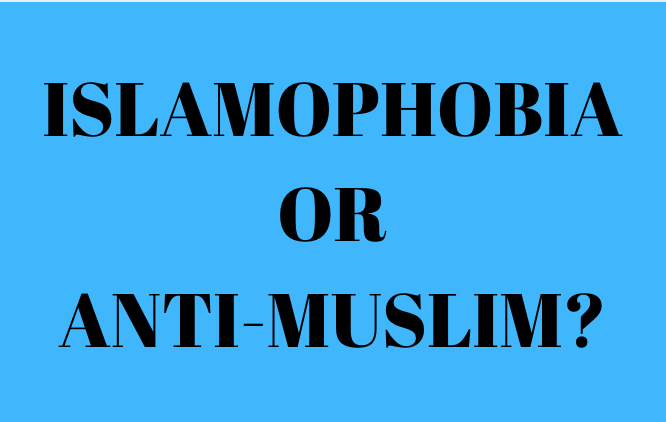21 May 2019
Country: UK
by: Anna Lekas Miller

 Anyone who has ever monitored—or experienced—Islamophobia knows that most attacks are as rooted in racial hatred as they are in anti-religious sentiment.
Anyone who has ever monitored—or experienced—Islamophobia knows that most attacks are as rooted in racial hatred as they are in anti-religious sentiment.
However, when the All Party Parliamentary Group (APPG) on British Muslims suggested adopting a broad definition of Islamophobia as “…rooted in racism and a type of racism that targets expressions of Muslimness or perceived Muslimness,” conservative MPs descended into an uproar, claiming that the definition would stifle criticism of Islam, and silence legitimate debates.
Communities Secretary James Brokenshire even went so far as to say that intertwining race with religion would have “legal and practical consequences.”It did not take long for the British rightwing media to start beating the drum of the “freedom of speech”—all the while ignoring the enormous amount of hate crimes targeting Muslims every year.
“The government is trying to make Islamophobia a hate crime,” Sun columnist Rod Liddle wrote, with an incredulous flair.
“How you can ban people from having rational objections to a highly questionable ideology eludes me,” he continues. “It’s like trying to ban criticism of fascism, or Marxism. But that’s what they’re doing.”
But it is not like that in the slightest. As many have pointed out, some of the most poignant criticisms and liveliest debates about Islam are amongst Muslims themselves. The definition is not intended to condemn criticism of Islam, but deliberate targeting of Muslims—two incredibly different things. The true goal of the debate is not about the definition of Islamophobia, but the consequences of it—which anyone advocating for British Muslims desperately wants to see stop.
“The demand for an Islamophobia definition isn’t about creating a legally binding definition or changing primary legislation on discrimination, much less free speech,” Runnymeade Trust Executive Director Omar Khan said in an interview with Metro News, addressing the concerns about whether or not the definition would hamper freedom of expression and debate.
“Instead it’s about focusing policymakers and the wider public on the multiple ways Muslims in Britain are discriminated against and more importantly, designing appropriate measures to respond to that discrimination.”
Despite making up only a little bit more than five percent of the British population, British Muslims make up 52 percent of the victims of hate crimes, according to statistics from the Home Office. According to monitoring organisations, separating these incidents based on race and religion is difficult, as many of the attacks are intersectional in nature, and often target an individuals religion, race and gender or sexual orientation.
“Racialisation has less to do with biology and more to do with a ‘radical’ form of othering which concerns power relations,” Tell Mama UK wrote in an article, looking at the intrinsic racism of most Islamophobic attacks.
“It concerns the political, economic and political marginalization of groups due to physical markers and cultural factors.”
Statistically speaking, Muslim women make up the bulk of hate crime victims largely because they are the most visibly Muslim, particularly if they wear a headscarf, niqab, or other form of traditional Islamic dress. This is further proof that most hate crimes are targeting an expression of Muslimness, rather than Islam itself.
But how can those pushing for the new definition get this message across without it derailing into a debate about whether or not it is a slippery slope into stifling criticism of fascism?
One way is by looking at the word: Islamophobia. Some argue that by changing the word to something more specific, such as “Anti-Muslim,” there would be less room for people to avoid discussing the reality of hate crimes. In 2015, the International Holocaust Remembrance Alliance (IHRA) adopted a similar tactic to avoid the way that debates about antisemitism devolved into who is and is not a Semite, rather than ways to abolish religious-based hatred. By requesting that their allies use “antisemitism” as one word, lowercase in their writing, the organisation is working to ensure that conversations remain focused on religious-based hatred in the Jewish community.
How would this look for Islamophobia? Forbes columnist Nikita Malik suggests that using the term “Anti-Muslim hatred” would give people a specific term to address hate crimes and racial bias, without falling into the polarizing debate about the meaning of Islamophobia. European Forum for Muslim Women defines Islamophobia as Anti-Muslim hatred, and argues that anything addressing the anti-religious element, must also address the racist undertones.
But would a change in terminology make the UK government take the debate seriously? It is hard to tell, but perhaps worth it to try.
Check out our Get The Trolls Out project, which monitors anti-religious hatred in the media. Join us in calling on IPSO—which regulates openly discriminatory papers, like the Sun—to do a better job. To read more about the work of Tell Mama UK, and some of our partners working on calling out Islamophobia, click here.
